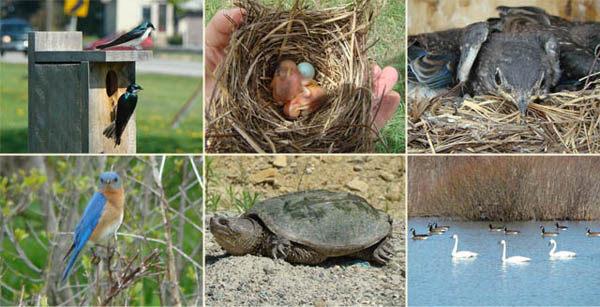Wildlife Habitat Council
 Over the years scientists and birders have discovered that landfills and their buffer properties are providing good nesting habitat for many types of grassland birds. And Chaffee Landfill is no exception.
Over the years scientists and birders have discovered that landfills and their buffer properties are providing good nesting habitat for many types of grassland birds. And Chaffee Landfill is no exception.
According to the Massachusetts Audubon Society, large grasslands are fast disappearing in the northeastern United States. A variety of factors are involved, from real estate development to changes in agricultural technologies. To help preserve this important habitat, the organization provides recommendations on how to manage grasslands to support healthy bird populations. These techniques are generally highly consistent with typical management procedures for a closed landfill, and include planting with native grasses and scheduled mowing to prevent the land from returning to forest.
Chaffee Landfill has areas of closed and capped landfill space, and employees have noticed several varieties of birds at the site, including bobolinks, Baltimore orioles, bluebirds, Eastern meadowlarks and kestrels. The company conducts mowing practices that protect ground-nesting birds. Mowing has been postponed in these areas until after August 31st. The increased grassland habitat will allow ground nesting birds the opportunity to raise their young in these areas.
Chaffee Landfill was certified by the Wildlife Habitat Council (WHC) in 2007 (Corporate Wildlife Habitat Certification/International Accreditation Program). Additional information regarding WHC can be found on their webpage at www.wildlifehc.org). In 2018, Chaffee Landfill's program was deemed successful yet again the WHC and was granted recertification. At that same time, Chaffee Landfill applied for and was awarded their Corporate Lands for Learning (CLL) certification through WHC, which fosters innovative teaching and learning techniques on-site and provides the community with an opportunity to participate in conservation efforts.
WHC has certified hundreds of programs at corporate facilities around the world providing third-party credibility and an objective evaluation of projects. Certification validates wildlife habitat projects to employees as well as the community at large, transferring sustainability into people’s everyday lives.
